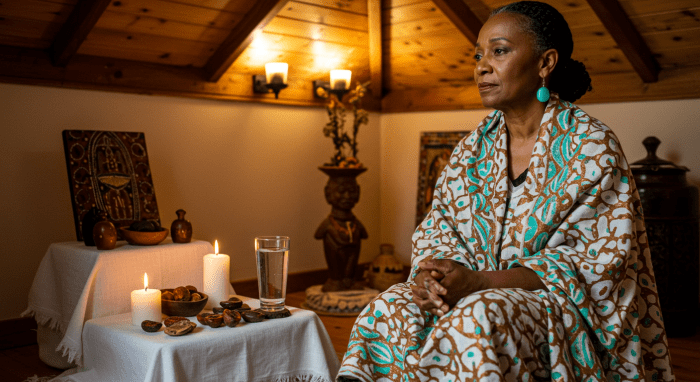
May 21, 2024 | Written By Bouneith Inejnema Naba
Questioning the calendar is not something that we are inclined to do. Why would we? It is the only method of time division that many of us know. Some do not even realize that the calendar on which we are functioning is in fact a Christian calendar and not a secular one. Muslims have their religious calendar, as do the Jews, and the Chinese have theirs as well. To think that the calendar that we use, the Gregorian Calendar, is the universal and correct calendar for all of humanity is simply naive. We all know that the world is much, much older than just 2025 years - this fact has been clearly proven both scientifically and sociologically. Why, then, is the tool that we use to organize our division of time one that is based on religious (Christian) events rather than a more concrete and universal phenomenon?
The common calendar is simply a religious calendar. It marks the beginning of the "modem" era, or, in other words, the era in which Christianity is the dominant religion. While it may be true that the majority of Americans are of Christian faith, this is not true for other countries in the world. Christians make up only a percentage of the world's population; there are Muslims, Hindus, Jews, Buddhists, Pagans, Kemetians, and other spiritual systems that do not subscribe to the Christian calendar, yet they are expected by the modern world to adapt and go along with the program. Why should they? The Christian calendar, being based on imperfect cycles of the Earth and on religious events, is neither accurate nor universal.
When we look closely at the Gregorian Calendar, we find many curious peculiarities that we tend to ignore because we feel satisfied with the idea that it is "just the way it is" . Why, for example, do some months have 30 days while others have 31 or 29? Why is it based on the rotation of the Earth when this rotation is not constant in its speed around the sun or its own rotation? Why do months start on different days of the week, and why is the week 7 days? These are simply questions that we would prefer not to ask due to intellectual laziness and societal pressure.
The history of the modern calendar is interesting. The first Christian calendar was created by the Romans, and was a calendar of ten months of thirty days. This calendar was simply inadequate, as it proved to be an unstable measurement of seasons - while fall started in September in one year, a few years later it started in December! Two months were added to this calendar, then one more, until finally it was abandoned for the Julian calendar. The Julian Calendar was adopted about fifty years "AD", and was also found to be faulty; its method of timekeeping was inaccurate, and the calendar found itself to be many days shorter than the actual year. Eventually, the Gregorian Calendar was adopted, and this is the calendar that we are expected to use until today, despite its fallacies and inconsistencies.
Meanwhile, a calendar that is not based on religious events or unstable cycles and rotations exists: The Sidereal Calendar. This is the calendar that was used in Kemet (Ancient Egypt) and the calendar that is still used by spiritual masters throughout Africa, Rather than being based on the inconsistent rotation and revolution of the Earth around the sun and religious events, the Sidereal Calendar is based on an exact astronomical cycle: The Heliacal Rising of the Sirius star. Sirius is a first magnitude star (HR 2491 HD 48915 Flamsteed Number: 9 Bayer Letter Alpha) in the Constellation of Canis Major, with a visual Magnitude of -1.46 and is also known as the Dog Star It rises directly behind the sun once every 1460 years; within this cycle of 1460 years, smaller cycles are seen. "Sirius rises directly behind the sun only once every 1460 years: this is called the Heliacal Rising. This cycle of 1460 years is the Great Year. During the Great Year, the cycle of Munny (Venus) occurs. The cycle of Munny is 2922 Earth days, which equals two cycles of 1461 days. Each cycle of 1461 days contains three cycles of 365 days and one cycle of 366 days." says Naba Lamoussa Morodenibig of The Earth Center, a Kemetic Priest who has resurrected the Sidereal Calendar. Using the Sidereal Calendar, years are counted from one to 1461, after which a new cycle begins with a new Great Year, and the counting begins again at one.
It is interesting to note that the Gregorian Calendar mimics the Sidereal Calendar so closely. Both calendars contain three cycles of 365 days and once cycle of 366 days. Both calendars are convenient for day- to-day usage and are consistent with the seasonal cycles. While the Gregorian Calendar is in the year 2025, the Sidereal Calendar begins year 425 on September 11, 2025. When comparing these two calendars, it is easy for one to realize that the Gregorian Calendar is based on the Sidereal Calendar, however, the philosophical and spiritual ideologies behind the calendar have changed.
"Existence is full. There is no room for anything new," says Master Naba. It seems that the attempts to recreate the original calendar by the Romans and Greeks failed; their calendars have proven to be inconsistent and astronomically incorrect. For the past 2000 years, the world has been forced to function on a system of time division that is based on inconsistent cycles and religious events; it is up to the individual to make a conscious choice to break free from the chains of ignorance. T







